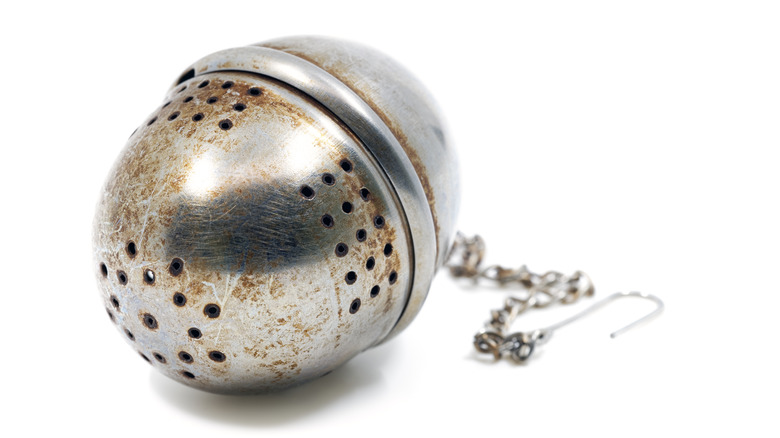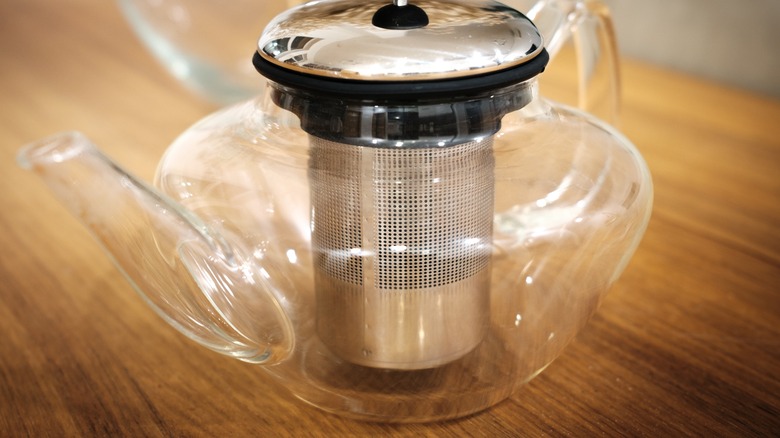The Big Downside To Using Metal Tea Infusers
We may receive a commission on purchases made from links.
Even if you are a diehard coffee fan who has tried all coffee types and every coffee brand under the sun, it's still important to have the necessary materials to make a warm cup of tea for non-coffee drinkers in your life. Because they too need a caffeine boost in the morning or a calming cup of tisane at night. You might even consider switching to tea as your beverage of choice, as tea trends like cold brews and matcha are making the drink — which is famously popular in England — more and more of a thing in the U.S.
You don't have to invest in a historic Yixing clay teapot that dates back to the Ming Dynasty to enjoy great tea (via Homes and Antiques). You don't even need a teapot, but if you are looking for something a bit fancier than a teabag, a tea infuser is a space-efficient tool. Metal tea strainers are practical, portable, and cheap, but they have one big downside.
Metals are reactive elements
Many teapots, whether made out of a light and clear glass material or a sturdier and heavier cast iron, can feature stainless steel infusers. Tea strainers are also often made out of metal. However, according to Red Blossom Blog, the metal can affect the way some delicate teas taste, and can even change the way it smells (via Tea Masters Blog).
Another con of using metal tea strainers is that they stain easily from the tea. This is because of molecules theanine and theophylline that are often found in tea. While these polyphenols are good for our nervous system, calming our bodies and reducing stress, they are also the culprit behind the stains on your metal tea infusers and strainers due to their electro-charged nature (via Tea How). Even if you don't notice the metal's impact on the taste of your tea, the unsightly stains may be bothersome. If that's the case, to clean your metal tea infuser, just take some white vinegar and soak your infuser for up to four hours (or even overnight in severe cases), and then rinse well before using it to steep tea leaves again.

